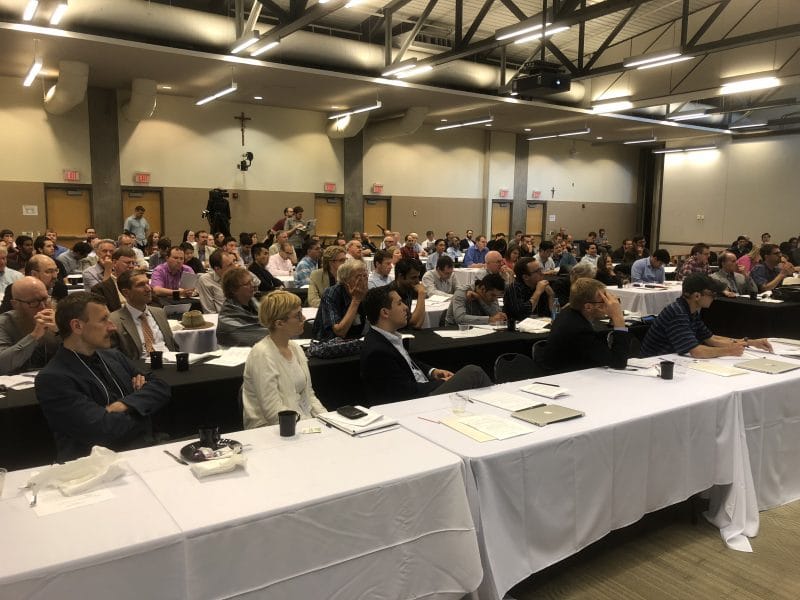2018 Conference Report and Other News

Dear Friends of the Society of Catholic Scientists,
I am writing to update you on the progress of the Society of Catholic Scientists..
SCS held its second conference at the Catholic University of America in Washington, DC, on June 8-10. There was great fellowship and lively discussion among the 150 participants, who included over 120 members of SCS and over 20 philosophers, theologians and historians. There were eleven talks in all and twenty poster presentations.
The main topic of the conference was materialism (or physicalism) and whether it could explain the human mind.
The line-up of speakers, as in the first conference, was stellar. The keynote speaker was the well-known Catholic philosopher Edward Feser, who gave an overview of philosophical arguments against materialism from Plato and Aristotle up through Saul Kripke and other contemporary philosophers. There were several talks about quantum mechanics and its implications for determinism and materialism. As in the first SCS conference, not all speakers were Catholic: Prof. Peter Koellner of Harvard University spoke about Gödel’s Theorems and what they imply (and don’t imply) about the human mind. One of the more fascinating talks was about recent neuroscience research that suggests that the common anti-free will interpretation of the famous “Libet experiments” is wrong.
Not all the talks were about materialism and the mind. The St. Albert Award was presented to Juan Maldacena of the Institute for Advanced Study, who spoke on “Black Holes and the Structure of Spacetime.” There was a talk about the great priest-scientist, Blessed Nicolaus Steno, one of the founders of the science of geology.
On the evening of June 9, a special Organ Recital was given for conference participants in the crypt of the Basilica of the National Shrine of the Immaculate Conception by Dr. Peter Latona, Music Director of the Basilica and renowned organist and composer.
The conference received good publicity in the Catholic press. Partly as the result of this publicity, the membership of SCS has grown to 840.
Information about the conference, including the conference program, biographies of the speakers, videos of some of the talks, and links to media coverage of the conference can be found HERE.
Due to a strange technical problem few of conference talks were recorded properly by the videographers who had contracted with CUA to do this. Fortunately, several speakers have agreed to re-record their talks at their own universities. In time, we expect to have videos with the content of eight of the eleven talks viewable on the website. For a directory of the available videos, which will be updated as more talks are re-recorded, go HERE.
I should note that this website now has a “video archive”, which contains not only talks rom SCS conferences, but a selection of “Recommended” videos on science-faith topics from other sources.
Prior to the 2018 SCS conference, the Thomistic Institute held a Symposium on “Thomistic Philosophy and Natural Science” https://thomisticinstitute.org/events/modernsciencesymposium, which was cosponsored by the Society of Catholic Scientists. Five of the eleven speakers were SCS members, including four members of the SCS Board. The Symposium brought together over fifty graduate students and advanced undergraduate students in natural science, philosophy and theology, many of whom were student members of SCS. Videos of the symposium talks can be seen here:. https://www.youtube.com/playlist?list=PL_kd4Kgq4tP-7TmuzUVdzS9n9htLC3p86
Steve Barr
President of SCS